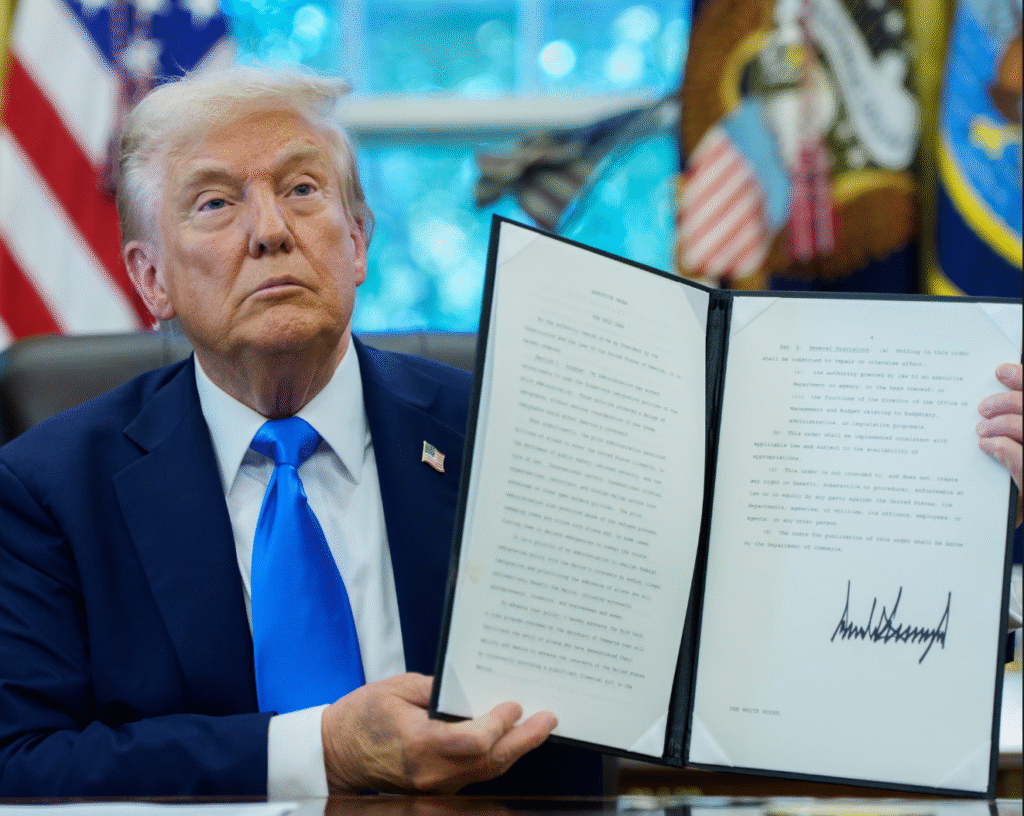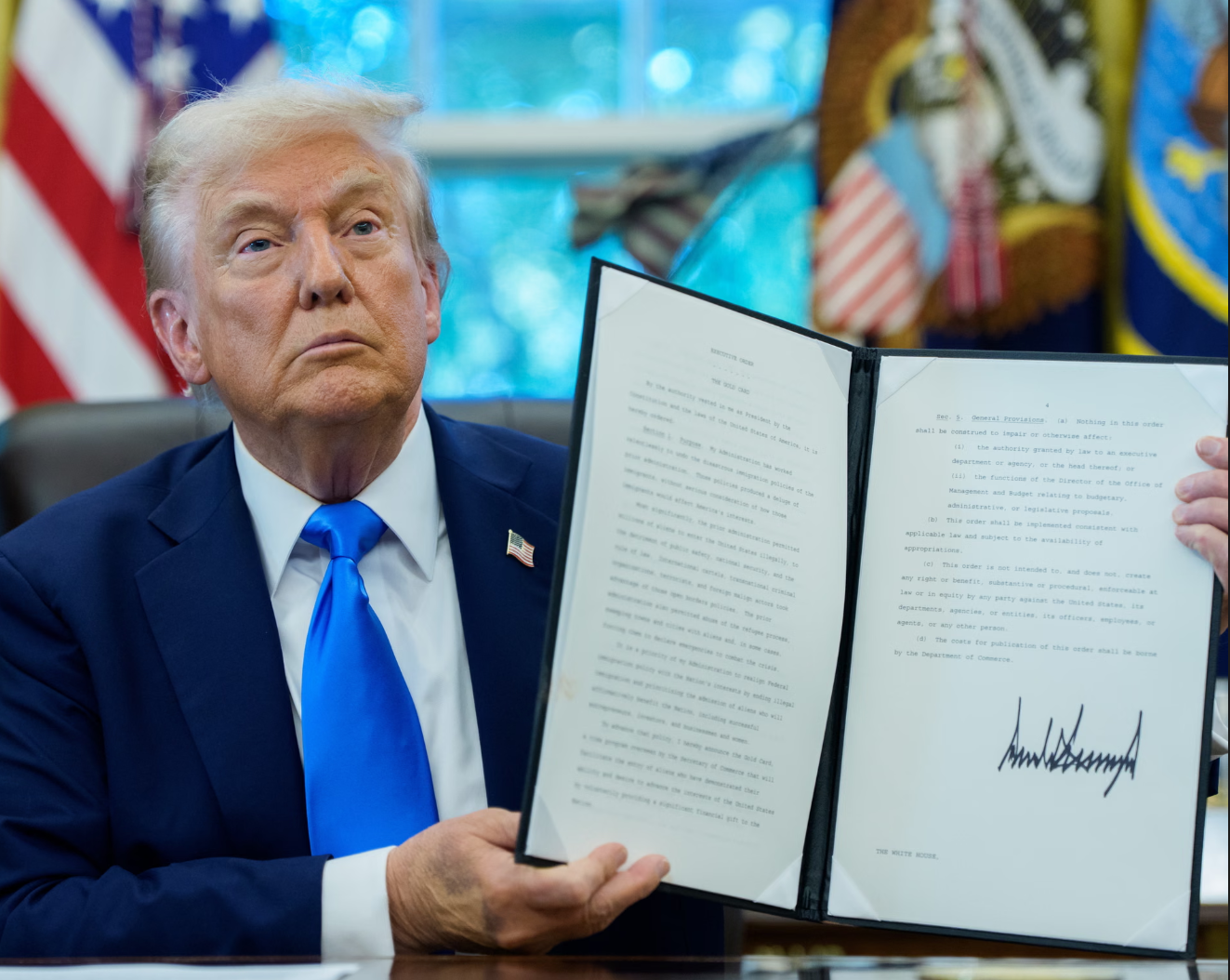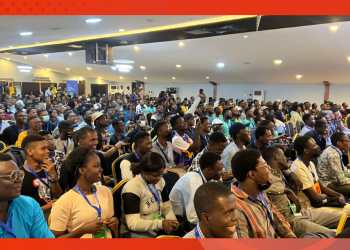President Trump has triggered a major shift in the global talent market by tying the entry of H1B visa holders to a $100,000 payment. The proclamation takes effect on 21 September 2025 and runs for twelve months, with the option of renewal. The Departments of State and Homeland Security are already under orders to enforce it, while the Department of Labour is tasked with raising prevailing wage levels and prioritising higher-paid applicants.
The new executive order strikes at the heart of how American companies have staffed critical functions for decades. For every employer, the choice now becomes stark: either absorb an additional $100,000 cost per foreign worker or rethink hiring strategies at speed.

What Elon Musk said months earlier
The controversy has been amplified by earlier comments from Elon Musk, who openly credited the H1B programme for making America strong. In late December 2024, Musk reminded his followers that both SpaceX and Tesla relied heavily on H1B talent.
“The reason I’m in America along with so many critical people who built SpaceX, Tesla and hundreds of other companies that made America strong is because of H1B,” Musk wrote, before warning critics to “take a big step back” and vowing to “go to war on this issue.”
His tweet underscores the stakes: some of America’s most iconic firms would not exist in their current form without H1B visas. Musk’s voice frames the policy not just as an immigration rule but as a potential blow to innovation itself.
What this means in numbers
A mid level software engineer hired through H1B typically earns between $150,000 and $220,000 in the United States. With the levy, that cost jumps to $250,000 to $320,000. Scale this across teams of fifty to one hundred engineers and the economics become unsustainable for many firms.
The H1B programme issues 85,000 new visas annually, on top of a live population above 600,000 visa holders. If even half of new applicants paid the levy, the U.S. Treasury would bank $4.25 billion a year. If renewals and extensions were later brought into scope, annual revenue could climb into tens of billions. Expect official narratives to emphasise wage protection and fiscal benefits in the months ahead.
The intended benefits at home
The White House argument is simple. H1B visas have suppressed wages and exported opportunity. Raising the price is meant to clear the market for American workers. Reality is more complex.
- Skill mismatch. H1B visas concentrate in technology, research, healthcare IT and advanced engineering. The United States has more than 400,000 unfilled software roles, and the domestic pipeline is not keeping pace with demand.
- Aspirational drift. Many highly skilled Americans with access to venture capital prefer to launch companies or consult rather than accept salaried developer roles.
- Pay expectations. Where Americans are available, compensation can sit well above historic H1B benchmarks. A role filled at $150,000 via H1B may require $250,000 or more to attract domestic talent of similar calibre.
So while the policy may expand offers to Americans, the decisive question is whether there is sufficient interest and supply to fill these roles at sustainable wages.
The unintended consequence abroad
If the levy is paid only in a minority of cases, companies will move more work to the talent rather than the talent to the work. Remote delivery becomes the default hedge against immigration risk.
Here it is important to define BPO. Business Process Outsourcing is the contracting of standard or specialised business functions to third party providers, often offshore. These functions range from customer service and call centres to finance, HR, software development, data annotation, analytics and design. India and the Philippines have long dominated BPO, but Africa and Latin America are rising quickly with credible talent, English language fluency and meaningful cost advantages.
- Remote first platforms such as Deel, Remote and Papaya Global will see record demand as companies seek compliant cross border payroll and benefits.
- Established hubs like Bangalore, Hyderabad, Manila, Kraków, Lagos and Guadalajara will feel labour markets tighten as employers reserve senior pods early.
- Africa will benefit as costs remain 40 to 60 per cent lower than typical U.S. packages and skills in fintech, cloud and AI support functions expand year on year.
Cost scenarios at a glance
The table below embeds the core economics for a 100 person engineering team under three realistic scenarios. Figures reflect total cash compensation and typical benefits where relevant, excluding ancillary items such as travel or one time relocation.
| Scenario | US, 100 Engineers | India, 100 Engineers | Nigeria, 100 Engineers |
|---|---|---|---|
| Status quo with no H1B fee | $18m–$22m annually ($180k–$220k per engineer) | $4m–$5m annually ($40k–$50k per engineer) | $3m–$4m annually ($30k–$40k per engineer) |
| H1B with $100,000 one off payment | $28m–$32m annually ($280k–$320k per engineer) | $4m–$5m annually (no H1B cost, remote delivery) | $3m–$4m annually (no H1B cost, remote delivery) |
| Full outsourcing or remote shift | Not applicable | $4m–$5m annually (remote first, cost steady) | $3m–$4m annually (remote first, cost steady) |
This simple comparison explains why procurement teams are already modelling remote first options. Even after quality premiums, senior uplift and compliance overheads, the offshore total remains a fraction of a U.S. build.
Africa’s window of opportunity
This policy is effectively a gift to African governments that can move quickly. Nigeria, Kenya, Ghana, South Africa and Rwanda can capture redirected demand by packaging incentives that matter to enterprise buyers: fast entity formation, dependable power, secure connectivity, payroll compliance, and targeted training in cloud, cybersecurity and AI operations.
By offering special economic zones, thoughtful tax holidays and fibre backed workspaces, these countries can transform temporary turbulence into a structural shift that positions Africa as a natural home for outsourced knowledge work.
Just as important, the opportunity does not belong to governments alone. African startups are uniquely positioned to take advantage of the disruption. Technology companies building in human capital, outsourcing, payroll and compliance can act as the “last mile” connectors between global demand and African supply. Startups offering Employer of Record (EoR) services, talent marketplaces, and SaaS-based productivity platforms can scale faster than ever as American firms urgently seek trusted partners.
The investor community will also find new openings. Venture capital firms and accelerators can back platforms that aggregate African developers, data scientists, designers and customer experience specialists into export-ready units. Incubators can pivot to position themselves as “offshore captives in a box” for U.S. startups suddenly forced to rewire their hiring models.
Local startups in fintech, AI, e-commerce and mobility also stand to benefit. With foreign companies shifting work to Africa, partnerships and procurement contracts will grow, creating predictable revenue streams. For many African founders, this moment could be the difference between surviving in fragmented domestic markets and scaling into sustainable global players.
Industry reaction
Maryam Ash, Recruitment Director at FindBlackExperts.com, described how fast the effects are being felt:
“For many of our clients across Africa and the diaspora, this decision has closed the door on relocating to the United States overnight. But it has not ended opportunity, it has redirected it. The future of work is about access, connectivity and collaboration without borders. At FindBlackExperts.com we are already supporting clients to adapt. That means helping American companies plug directly into African and diaspora talent pools, with payroll, compliance and governance already in place. The demand is here and we are ready to meet it.”
Her words capture the wider mood across global recruitment. The shock is painful for individuals, yet the acceleration of alternative hiring models is undeniable.
Winners and losers
Winners
- Remote work platforms and employer of record firms
- Outsourcing hubs in India, the Philippines, Latin America and Africa
- Governments that market themselves as offshore ready investment destinations
Losers
- American firms reliant on steady H1B inflows in technology, research and healthcare
- Universities that depend on international postgraduates
- H1B candidates abroad whose offers may now be withdrawn or converted to remote contracts
The bottom line
If the policy fails in court, the shift to remote will still have gathered speed because risk averse employers will have built the muscle. If the policy holds, the U.S. Treasury will report billions in new revenue and American workers may enjoy stronger bargaining positions, although it remains uncertain whether they will fill these roles at scale or prefer to build companies of their own.
The likeliest outcome is a hybrid. American employers will pay more at home and abroad. Offshore markets will enjoy a surge of contracts. The United States will headline significant revenue from H1B related payments.
In that world the movement of people may be constrained, but the movement of work is unstoppable. As Elon Musk warned, America’s innovation advantage itself was built on the shoulders of H1B workers. The question now is whether raising the barrier will protect that advantage or weaken it.















